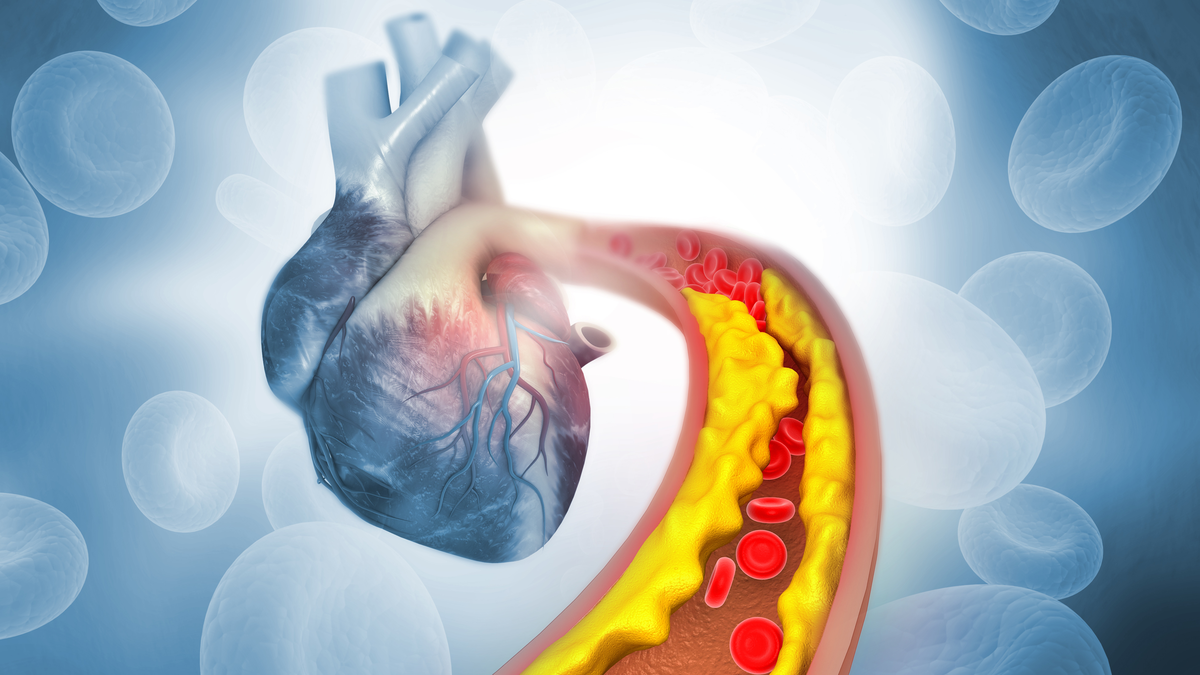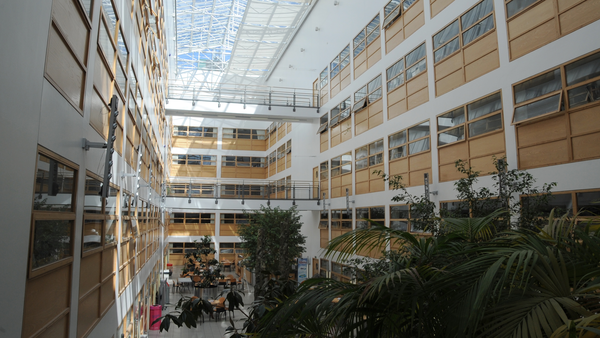Ozoda Azimova

Cardiovascular disease is one of the leading causes of death globally, accounting for more than 30%, and is set to increase over the next few decades, due to an ageing population and a steep rise in metabolic syndromes. Our MSc programme, taught by scientists and clinicians who are leaders in their field, will equip you with knowledge of the epidemiology, genetics, pathological and molecular mechanisms underpinning cardiovascular disease, its diagnosis, risk factors and pharmacological management.

Our programme will deliver a cutting-edge view of cardiovascular and metabolic science which have been identified as priority areas of the Scottish and UK Governments and funding bodies. This modular-based programme comprises research-led teaching experience including tutorials, workshops and a laboratory research project supervised by leading internationally recognised cardiovascular, diabetes and nutritional scientists.
Why study with us?
The combination of internationally recognised cardiovascular laboratory research, input of clinicians to the teaching and the established excellence in nutrition research at the Rowett Institute provides a unique experience for students. You will be equipped with knowledge and skills needed to secure subsequent PhD training in academia, or employment in the pharmaceutical, biotechnology, healthcare or educational sectors. Students will study core courses in molecular medicine, genome-enabled medicine and bioinformatics, alongside cardiovascular and metabolic sciences taught in the context of health and disease.
The taught part of our MSc programme extends over two semesters. Over the last four months of the programme, students will undertake an individual research project.
This course, which is prescribed for all taught postgraduate students, is studied entirely online, takes approximately 5-6 hours to complete and can be taken in one sitting, or spread across a number of weeks.
Topics include orientation overview, equality and diversity, health, safety and cyber security and how to make the most of your time at university in relation to careers and employability.
Successful completion of this course will be recorded on your Enhanced Transcript as ‘Achieved’.
15 Credit Points
The aim of this programme is to develop a rigorous scientific approach to understanding of cardiovascular health and the underlying causes of cardiovascular disease. This will be achieved through a series of lectures, laboratory practical, case study sessions and interactive clinical demonstrations. This will be delivered by academic staff from the Institute of Medical Sciences and clinical staff from NHS Grampian. This will equip you with the full range of academic, critical thinking, research and investigatory skills necessary for laboratory research and/or PhD study.
15 Credit Points
The course focuses on the molecular mechanisms of drug action and how cutting edge research can advance current therapeutic approaches to disease. The utility of molecular pharmacology will be highlighted in the context of current and future drug discovery for cardiovascular, neurological and metabolic diseases and cancer.
Students select two elective courses from the following:
15 Credit Points
This course provides all of the basics regarding the immune system, including both the innate and adaptive immune system and how they are important in a range of different disease scenarios.
15 Credit Points
Course Aims:
The course aims to enable you to develop a broad knowledge, understanding, and application of the scientific basis of human nutrition.
Learning Outcomes:
By the end of the course, you should be able to:
15 Credit Points
This course will give you a detailed theoretical and practical understanding of the methods used to assess nutritional status, including dietary intake, assessment of body composition and energy expenditure applied in the context of energy balance. Theory will be put into practice through a series of practical workshop and laboratory sessions to give you ‘hands-on’ experience of using a range of assessment techniques using state-of-the-art equipment routinely employed by nutritional scientists.
15 Credit Points
The aim of this course is to develop a rigorous scientific approach to understanding (1) glucose and nutrient homeostasis and the fundamental causes of diabetes; (2) the long-term complications and other metabolic diseases associated with poorly controlled diabetes, poor nutrition, obesity, lifestyle, and ageing. Finally, (3) depending on the type of diabetes, different approaches e.g. healthy diet, regular physical activity and various medications may play important roles in treating and managing diabetes.
This will be achieved through a series of lectures, small class tutorials, case study sessions with research scientists and nutritionists from the Institute of Medical Sciences and the Rowett Institute and clinicians from NHS Grampian.
The course is naturally complimented by BM5003: Cardiovascular Health and Disease and, also, by conducting an independent and original research project in term 3, working alongside experienced diabetes researchers.
This will equip you with the full range of academic, critical thinking, research and investigatory skills necessary for laboratory research and/or PhD study.
15 Credit Points
This course will provide a detailed knowledge of the relationships between diet, human development, health, and disease. Topics covered include diet and nutrition across the life course, integration and adaptability of different metabolic pathways to e.g. starvation, exercise, and the role of diet in the development of diseases including cancer and cardiovascular disease. In addition, it will also provide insight into the effects of malnutrition and food processing on health. A combination of lectures, and a laboratory class will help consolidate your understanding of the impact food and nutrients on health.
Students undertake two electives from a choice of the following courses:
15 Credit Points
Biologic therapies represent one of the most important and novel areas of drug discovery in the 21st century. The aim of this course is to provide an insight into the success of protein, peptide or antibody based biologic therapies and to examine how this exciting new area will develop over the next decade.
15 Credit Points
The genetic basis of self/non-self discrimination underlies all immune responses and can influence disease susceptibility at the level of both individual and populations. This course addresses this topic through lectures from research active experts in the main areas covered.
The course workshop involves students delivering a poster presentation on a course-related topic, providing the opportunity for students to practice presentation skills before undertaking the Masters Research project later in the academic year.
15 Credit Points
The aim of this course is to develop understanding of hypothesis-lead research and to provide an opportunity to study advanced science concepts and experimental approaches led by an experienced member of academic staff.
15 Credit Points
Clinical nutrition is the study of diet in relation to the development and treatment of human disease. This specialism course provides an up-to-date and detailed knowledge on the role of nutrition in the aetiology, prevention and treatment of disease in humans, with particular emphasis on disease prevention. The course covers key topics surrounding nutrition and disease, and how clinical nutrition links with public health and molecular nutrition. The course also provides an overview of research tools widely used in clinical nutrition research, and a training on evidence-based analysis of nutrition case studies.
Please note, some of the material on this course will discuss animal research.
15 Credit Points
This course reviews a range of essential methodologies that are currently used in medical research from molecular technologies to human studies. Experts in the various techniques will describe the fundamentals of the methodology and show how they can be applied.
Students undertake one individual research project.
60 Credit Points
This course offers students the opportunity to complete a substantial piece of data-driven, empirical work within their field of study under the supervision of an experienced researcher.
Topics available will be varied but within the domain of their field of study. Alongside supervisors, students will identify a suitable topic area, describe an appropriate study design and implement an empirical study to be completed within a laboratory setting. Students will be involved alongside the supervisors in the process of defining the research question, and developing the research plan and, where appropriate, obtaining regulatory approvals. This course is for non-laboratory based projects (if you are intending to undertake a project in a scientific laboratory setting you should register on MB5913)
60 Credit Points
This course offers students the opportunity to complete a substantial piece of data-driven, empirical work within their field of study under the supervision of an experienced researcher.
Topics available will be varied but within the domain of their field of study. Alongside supervisors, students will identify a suitable topic area, describe an appropriate study design and implement an empirical study to be completed within a laboratory setting. Students will be involved alongside the supervisors in the process of defining the research question, and developing the research plan and, where appropriate, obtaining regulatory approvals. This course is for laboratory-based projects (if you are intending to undertake a project in non-laboratory setting you should register on PU5913)
We will endeavour to make all course options available; however, these may be subject to timetabling and other constraints. Please see our InfoHub pages for further information.
| Fee category | Cost |
|---|---|
| EU / International students | £27,000 |
| Tuition Fees for 2024/25 Academic Year | |
| UK | £12,200 |
| Tuition Fees for 2024/25 Academic Year |
Further Information about tuition fees and the cost of living in Aberdeen
Self-funded international students enrolling on postgraduate taught (PGT) programmes will receive one of our Aberdeen Global Scholarships, ranging from £3000 to £8,500, depending on your domicile country. Learn more about the Aberdeen Global Scholarships here.
To see our full range of scholarships, visit our Funding Database.
The teaching on this programme will encompass research-led learning using laboratory practical classes, workshops, clinical demonstrations and tutorials to support the lecture material. Lectures are recorded and can be viewed again when required. The MSc makes the most of hands-on learning to enable repeated exposure to evidence-based practice in cardiovascular and diabetes research using clinical case studies. Some of the teaching methods employed in the programme include:
On-going support is provided by the University’s dedicated, interdisciplinary team of experienced researchers within the Aberdeen Cardiovascular and Diabetes Centre (both laboratory and clinical), who will be tutoring you. Peer support will develop throughout the course(s) as engagement with students from other countries and disciplines is actively encouraged. Much of the teaching on this course is participatory and you are expected to consolidate all taught content by completing related tasks and activities and engaging in independent study in your own time.
Taught courses are assessed by a combination of written assignments and reports, oral presentations, and by examination. All students undertake a research project, which is submitted for assessment in the form of a short research thesis. Students also present an oral and poster presentation on their project.
The information below is provided as a guide only and does not guarantee entry to the University of Aberdeen.
A second class Honours degree (2:1 or above) or equivalent qualification in biological science degree is required for entry onto this programme. Other degree classes (2.2 is a minimum) and subjects may be considered as long as the applicant demonstrates experience in biological subjects.
Please check the In My Country pages to find out if your degree is equivalent.
Please enter your country to view country-specific entry requirements.
To study for a Postgraduate Taught degree at the University of Aberdeen it is essential that you can speak, understand, read, and write English fluently. The minimum requirements for this degree are as follows:
IELTS Academic:
OVERALL - 6.5 with: Listening - 5.5; Reading - 6.0; Speaking - 5.5; Writing - 6.0
TOEFL iBT:
OVERALL - 90 with: Listening - 17; Reading - 21; Speaking - 20; Writing - 21
PTE Academic:
OVERALL - 62 with: Listening - 59; Reading - 59; Speaking - 59; Writing - 59
Cambridge English B2 First, C1 Advanced or C2 Proficiency:
OVERALL - 176 with: Listening - 162; Reading - 169; Speaking - 162; Writing - 169
Read more about specific English Language requirements here.
You will be required to supply the following documentation with your application as proof you meet the entry requirements of this degree programme. If you have not yet completed your current programme of study, then you can still apply and you can provide your Degree Certificate at a later date.
Eligible self-funded post graduate taught (PGT) students will receive the Aberdeen Global Scholarship. Explore our Global Scholarships, including eligibility details, on our dedicated page.
Aberdeen Global ScholarshipsThe MSc in Cardiovascular Science and Diabetes will provide you with the academic, analytical and practical skills to equip you for further research or a career in industry, healthcare or beyond. Many of our graduates choose to continue in research careers and begin PhDs or become research scientists (research assistants or technicians). Our scientists have obtained posts in Universities, industry, biotechnology and hospital diagnostic and pathology laboratories.
More generally, cardiovascular and diabetes researchers can use their training in education, working in schools, colleges of further education and in Universities. Further opportunities are available to apply your training in scientific publishing, in patent offices working on biological patents, in science outreach and contributing to the public understanding of biological issues.
You will be taught by a range of experts including professors, lecturers, teaching fellows and postgraduate tutors. Staff changes will occur from time to time; please see our InfoHub pages for further information.

Focused on developing future effective therapies, the Institute of Medical Sciences houses nearly 400 researchers and support staff working on cutting-edge biomedical subjects aimed at understanding the human body's response to infection and disease.

The purpose built Rowett Institute, on the Foresterhill Health Campus, is equipped with state-of the-art laboratory facilities, write-up areas and a specialist Human Nutrition Unit.

Our state-of-the-art Science Teaching Hub provides students with a digitally focussed environment including advanced analytical tools, research-grade equipment and flexible laboratory spaces.
Find out more